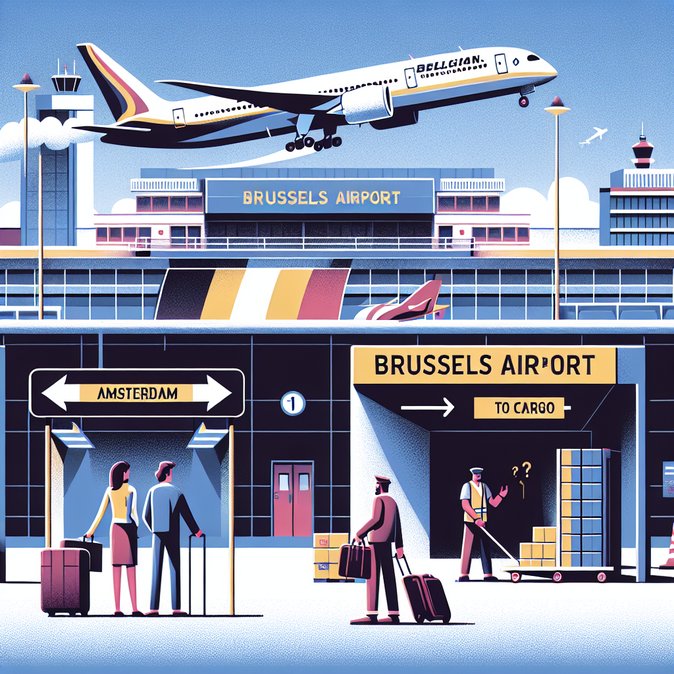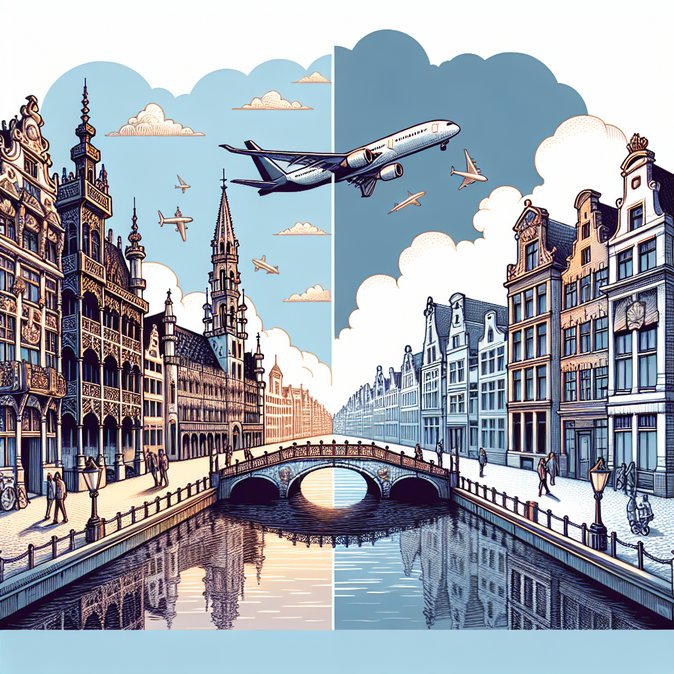
A chapter in Belgium’s aviation history closed on the evening of 1 November 2025 when TUI Fly Belgium flight TB171, a Boeing 787-8 nicknamed *Diamond*, lifted off for Curaçao. The overnight run was not just another seasonal charter: it was the airline’s final long-haul departure from Brussels Airport before suspending all intercontinental services.
TUI had signalled the retrenchment back in February, citing higher operating costs at Brussels and better fleet synergies inside the wider TUI Group. Over the past week the leisure carrier had already flown its last rotations to Punta Cana and Cancún; the Curaçao flight was the swan‐song. From the winter 2025/26 season onward, Belgian holiday-makers heading to the Caribbean will route via Amsterdam Schiphol or rely on code-share partners such as KLM or Air France.
For globally mobile employers the change has practical consequences. Direct belly-hold cargo space for high-value pharma shipments—a Brussels specialty—shrinks by about 50 tonnes per week. Corporations that used the non-stop flights to position technicians or rotate expatriate staff on tax-efficient 90-day stints now face layovers, longer duty times and tighter Schengen-stay calculations.
![Last call to the Caribbean: TUI Fly’s final Curaçao service marks end of Brussels long-haul era]()
TUI Fly’s Dreamliners will be re-registered in the Netherlands and redeployed on longer-range leisure routes out of Amsterdam. In Brussels the airline will focus on medium-haul sunshine destinations with a streamlined fleet of Boeing 737 MAX and Embraer E195-E2 jets, which offer lower per-seat emissions but restrict cabin crew to EU corridors. Airport operator Brussels Airport Company says the gap creates opportunities for other carriers; discussions are under way with Air Belgium and Spanish newcomer World2Fly about picking up the Punta Cana licence.
Travel-management companies advise Belgian corporates to audit itineraries that previously relied on TUI’s non-stops, especially for time-sensitive projects in the Dutch Caribbean where onward connections are limited. Companies may also need to re-visit per-diem policies as overnight layovers in Amsterdam or Paris become the norm. For export-oriented SMEs that piggy-backed on TUI’s cargo allowance, DHL and Singapore Airlines Cargo are positioning additional freighters to cover the loss.
Although the Dreamliner’s departure drew applause from spotters lining the perimeter fence, industry analysts view the retreat as a cautionary tale: without strong feed and premium traffic, long-haul leisure routes from mid-sized hubs like Brussels struggle to stay profitable. Unless market conditions change, Belgian travellers may have to get used to catching their intercontinental flights elsewhere.
TUI had signalled the retrenchment back in February, citing higher operating costs at Brussels and better fleet synergies inside the wider TUI Group. Over the past week the leisure carrier had already flown its last rotations to Punta Cana and Cancún; the Curaçao flight was the swan‐song. From the winter 2025/26 season onward, Belgian holiday-makers heading to the Caribbean will route via Amsterdam Schiphol or rely on code-share partners such as KLM or Air France.
For globally mobile employers the change has practical consequences. Direct belly-hold cargo space for high-value pharma shipments—a Brussels specialty—shrinks by about 50 tonnes per week. Corporations that used the non-stop flights to position technicians or rotate expatriate staff on tax-efficient 90-day stints now face layovers, longer duty times and tighter Schengen-stay calculations.

TUI Fly’s Dreamliners will be re-registered in the Netherlands and redeployed on longer-range leisure routes out of Amsterdam. In Brussels the airline will focus on medium-haul sunshine destinations with a streamlined fleet of Boeing 737 MAX and Embraer E195-E2 jets, which offer lower per-seat emissions but restrict cabin crew to EU corridors. Airport operator Brussels Airport Company says the gap creates opportunities for other carriers; discussions are under way with Air Belgium and Spanish newcomer World2Fly about picking up the Punta Cana licence.
Travel-management companies advise Belgian corporates to audit itineraries that previously relied on TUI’s non-stops, especially for time-sensitive projects in the Dutch Caribbean where onward connections are limited. Companies may also need to re-visit per-diem policies as overnight layovers in Amsterdam or Paris become the norm. For export-oriented SMEs that piggy-backed on TUI’s cargo allowance, DHL and Singapore Airlines Cargo are positioning additional freighters to cover the loss.
Although the Dreamliner’s departure drew applause from spotters lining the perimeter fence, industry analysts view the retreat as a cautionary tale: without strong feed and premium traffic, long-haul leisure routes from mid-sized hubs like Brussels struggle to stay profitable. Unless market conditions change, Belgian travellers may have to get used to catching their intercontinental flights elsewhere.





